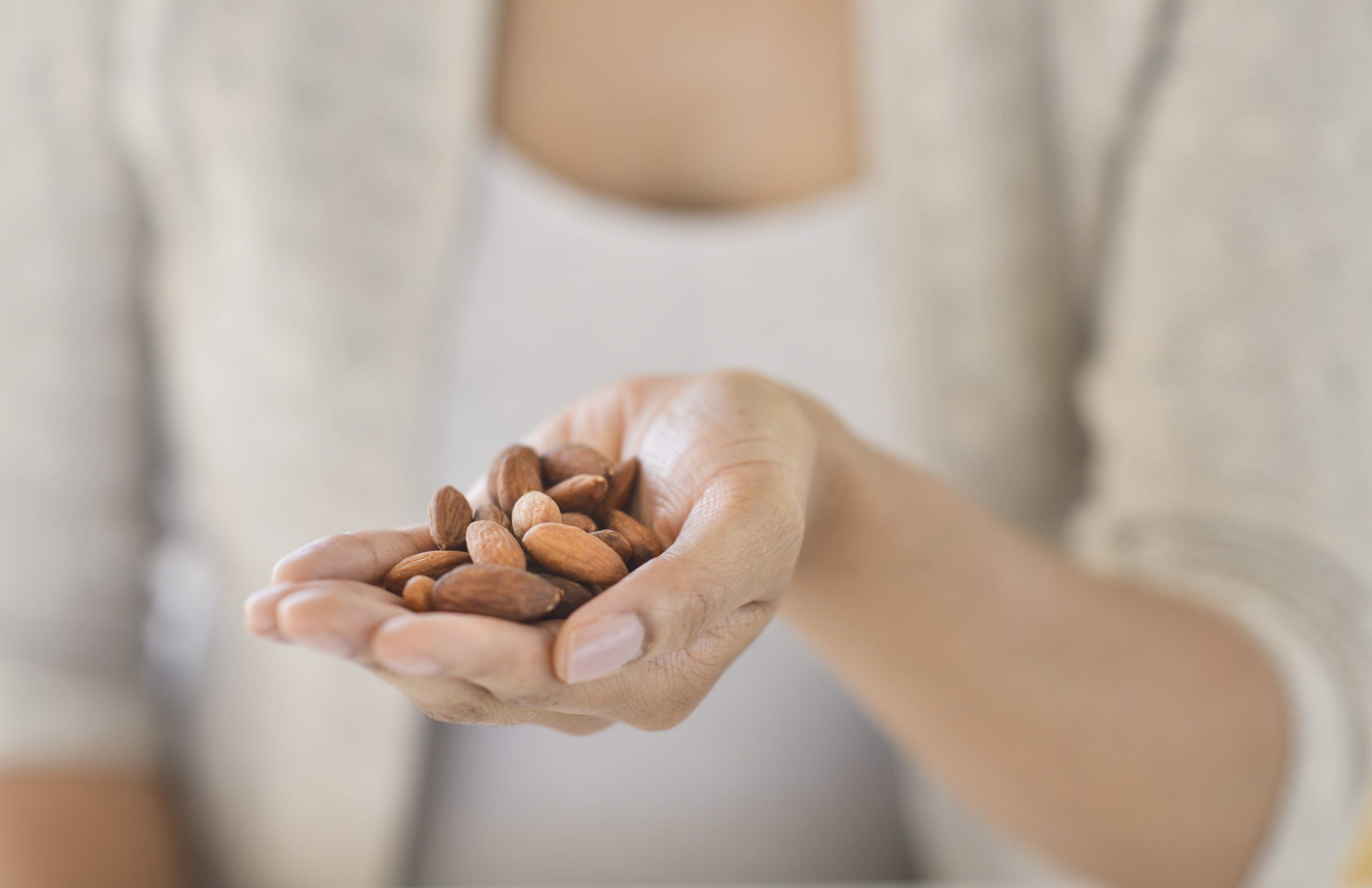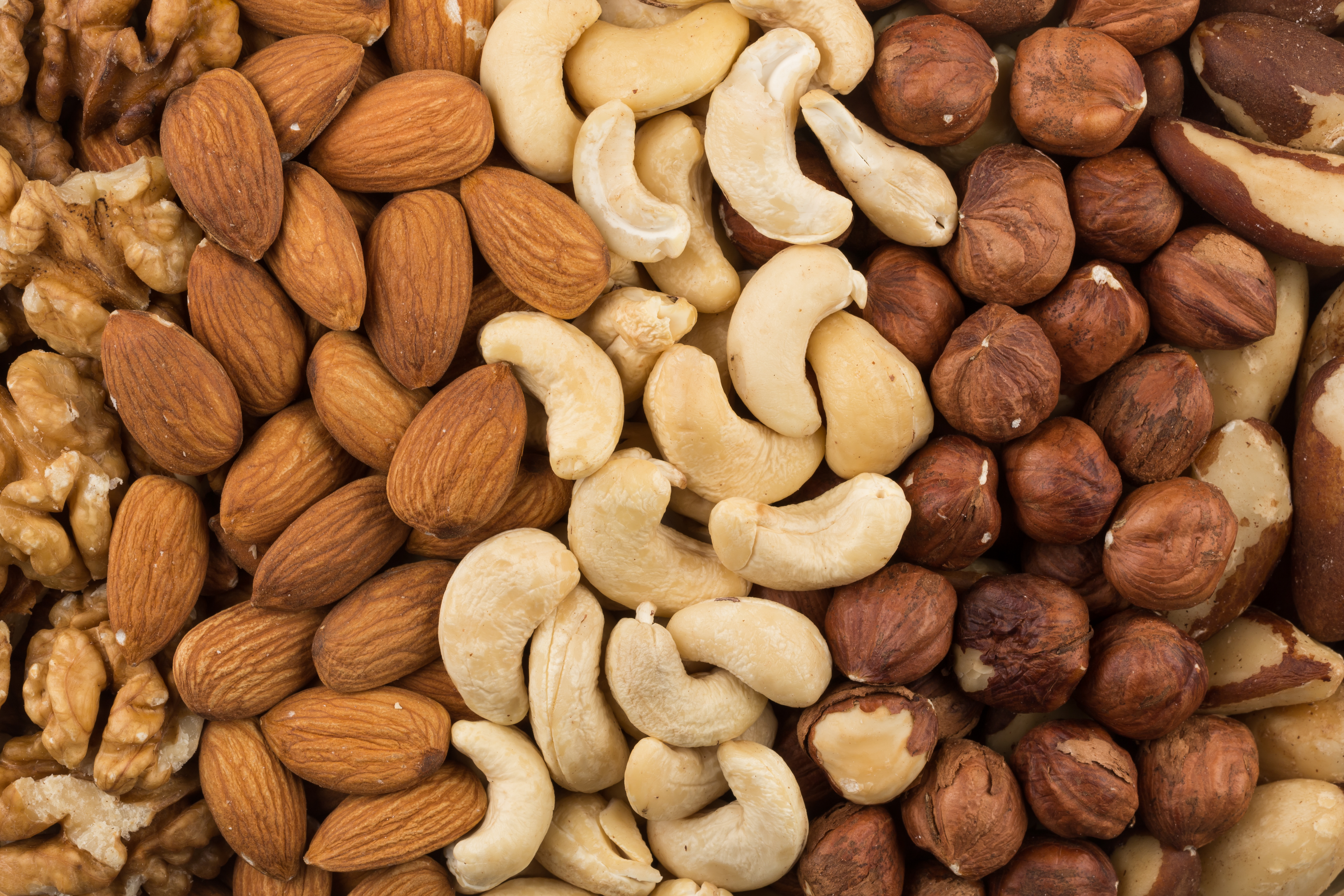Are nuts actually good for you?


It seems as though every week we hear something different about nuts - one day, they're too fattening to snack on, and the next, they're the new health superfood.
So are they really the health hero we think they are? According to dietitian Dr Carrie Ruxton, “Absolutely! They are rich in protein, unsaturated fats (the best ones for heart health), fibre, and a host of vitamins and minerals such as vitamin E, magnesium, calcium, selenium and folate.”
Some are better than others for particular health issues but, whichever your preference, definitely put them on your weekly shopping list.
And don’t worry that they’ll make you pile on the pounds – that’s a complete fallacy. “Quite the opposite,” explains Dr Carrie. “They can help to control body weight as they boost satiety – that feeling of fullness after eating.” Studies show that eating nuts daily, as part of a Mediterranean diet, won’t influence body weight at all.
How many nuts should we have per day?
One handful – around 25-40 grams – is enough to deliver nutritional and health benefits without breaking the calorie bank.
But which nuts are best for our different requirements?
Best nuts for your heart
Walnuts are best. According to research, walnuts help our blood vessels to be more elastic, which is thought to help control blood pressure.
Sign up to our free daily email for the latest royal and entertainment news, interesting opinion, expert advice on styling and beauty trends, and no-nonsense guides to the health and wellness questions you want answered.
Best nuts for your brain
Peanuts or pistachios. A study that measured brainwave frequencies found that pistachios could be good for learning and memory, while peanuts (strictly a legume, not a nut) were better for deep sleep. A new study has found that eating these nuts on a regular basis strengthens brainwave frequencies associated with cognition, healing, learning, memory and other key brain functions.
Best nuts for cutting belly fat

Almonds are best. A study in the Journal of the American Heart Association found that eating a daily handful of almonds, instead of a high carbohydrate snack with equal calories, helped reduce fat in the belly area and significantly improved cholesterol levels.
Best nuts for lowering your risk of Type 2 diabetes
All kinds of tree nuts are associated with a lower risk of metabolic syndrome (sometimes called prediabetes), according to a large US survey, so take your pick from the ones you like best, such as pecans, almonds, Brazil nuts, cashews, hazelnuts, macadamia nuts, pistachios, pine nuts, shea nuts or walnuts.
The low fat option
By far the nut with the lowest fat and calories, chestnuts are rich in starchy carbs and fibre, and in their raw form are a good source of vitamin C. They’re lower in protein than other nuts but offer a useful amount of B vitamins, including B6. Ground chestnut flour can be used as a gluten-free flour for cakes and bakes, or buy fresh and roast for a tasty snack.
Four healing super snacks
Detox with Brazil nuts. Just one or two Brazil nuts provide more than your daily dose of selenium, a trace element that’s crucial for liver health.
And beat migraines with almonds. Having low levels of magnesium – abundant in almonds – has been linked to migraines. Eat 28 grams of dry roasted almonds daily.
You can also ease inflammation with walnuts. A 2014 review in the Journal of Nutrition found that the antioxidant polyphenolic compounds in walnuts can reduce harmful inflammation in brain cells, potentially lowering the risk of cognitive decline. Add to yogurt or cereal for a daily dose.
Heal wounds with cashews - cashews contain high levels of zinc, which is vital for wound healing. Try roasting cashews with paprika for a healthy snack. One serving is the equivalent of 16 nuts.
From the October issue of Woman & Home magazine.
Faye M Smith is an award-winning journalist with over 20 years experience in the magazine industry. Her continued work in the area of natural health won her the coveted title of the Health Food Manufacturers’ Association (HFMA) Journalist of the Year Award 2021. Currently Group Health Director across several magazines including woman&home, Woman, and Woman’s Own, Faye specialises in writing about women’s health, especially menopause, relationships and mental health.
